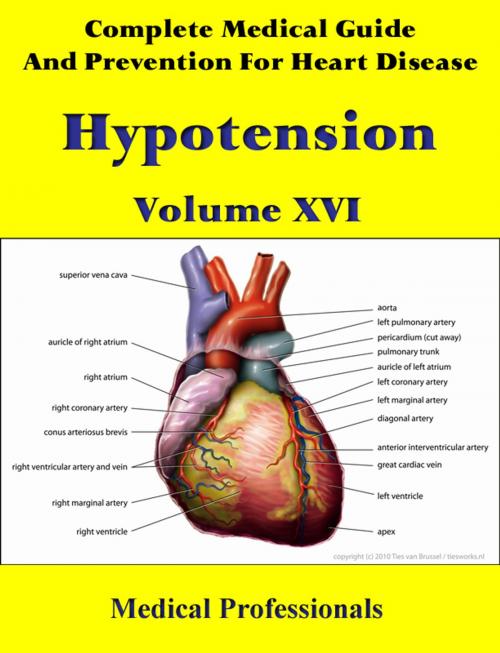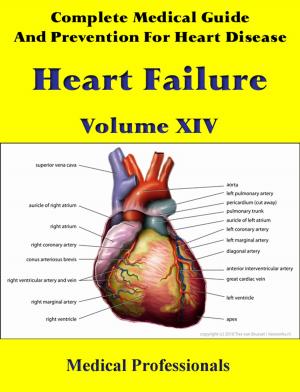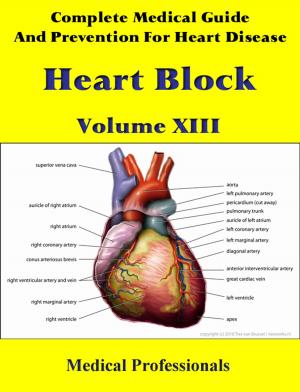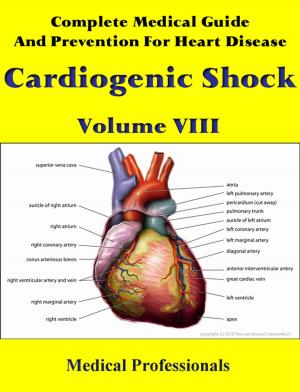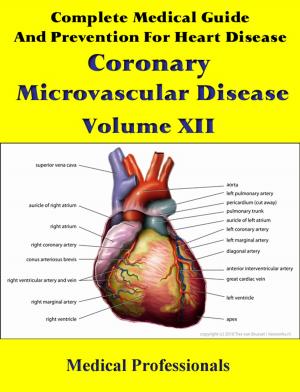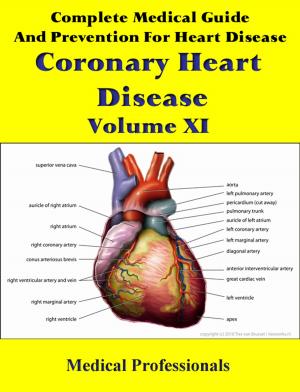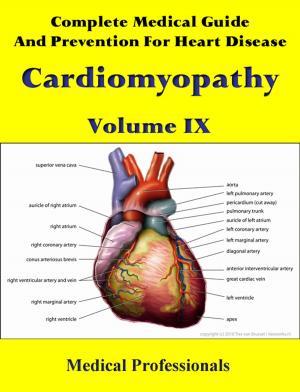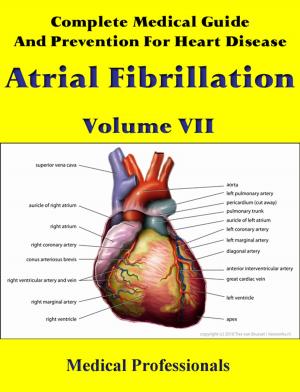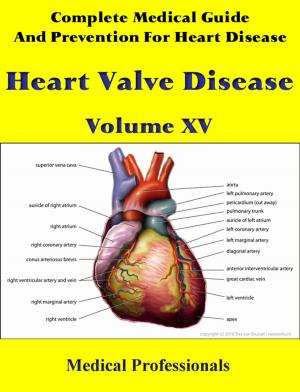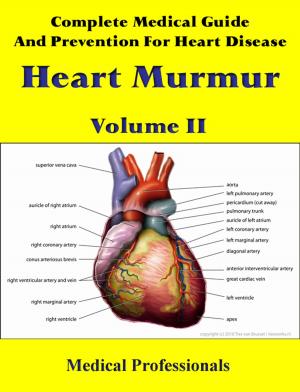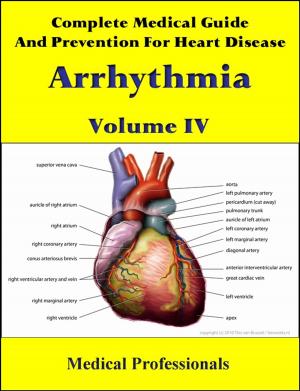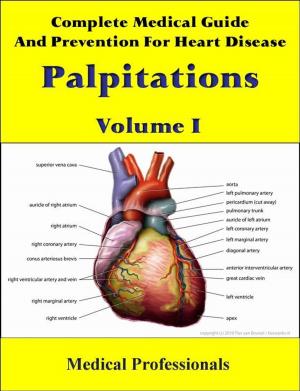A Complete Medical Guide and Prevention For Heart Diseases Volume XVI; Hypotension
Nonfiction, Health & Well Being, Health, Ailments & Diseases, Heart, Health Care Issues| Author: | Medical Professionals | ISBN: | 1230000037158 |
| Publisher: | MedHealth | Publication: | December 6, 2012 |
| Imprint: | Language: | English |
| Author: | Medical Professionals |
| ISBN: | 1230000037158 |
| Publisher: | MedHealth |
| Publication: | December 6, 2012 |
| Imprint: | |
| Language: | English |
In physiology and medicine, hypotension is abnormally low blood pressure, especially in the arteries of the systemic circulation. It is best understood as a physiological state, rather than a disease. It is often associated with shock, though not necessarily indicative of it. Hypotension is the opposite of hypertension, which is high blood pressure. Blood pressure is the force of blood pushing against the walls of the arteries as the heart pumps out blood. If it is lower than normal, then it is called low blood pressure or hypotension. Hypotension is generally considered to be systolic blood pressure less than 90 millimeters of mercury (mm Hg) or diastolic less than 60 mm Hg. However in practice, blood pressure is considered too low only if noticeable symptoms are present.
For some people who exercise and are in top physical condition, low blood pressure is a sign of good health and fitness. For many people, low blood pressure can cause dizziness and fainting or indicate serious heart, endocrine or neurological disorders. Severely low blood pressure can deprive the brain and other vital organs of oxygen and nutrients, leading to a life-threatening condition called shock.
In physiology and medicine, hypotension is abnormally low blood pressure, especially in the arteries of the systemic circulation. It is best understood as a physiological state, rather than a disease. It is often associated with shock, though not necessarily indicative of it. Hypotension is the opposite of hypertension, which is high blood pressure. Blood pressure is the force of blood pushing against the walls of the arteries as the heart pumps out blood. If it is lower than normal, then it is called low blood pressure or hypotension. Hypotension is generally considered to be systolic blood pressure less than 90 millimeters of mercury (mm Hg) or diastolic less than 60 mm Hg. However in practice, blood pressure is considered too low only if noticeable symptoms are present.
For some people who exercise and are in top physical condition, low blood pressure is a sign of good health and fitness. For many people, low blood pressure can cause dizziness and fainting or indicate serious heart, endocrine or neurological disorders. Severely low blood pressure can deprive the brain and other vital organs of oxygen and nutrients, leading to a life-threatening condition called shock.
